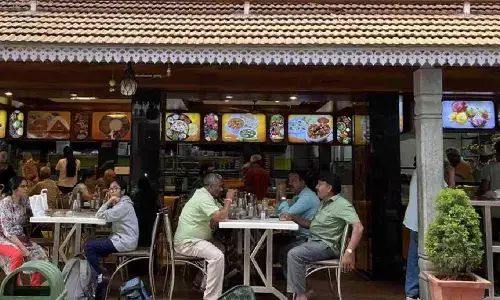A look into eco-friendly culinary practices

There has been a growing awareness of the environmental impact of our daily choices, including the food we consume
There has been a growing awareness of the environmental impact of our daily choices, including the food we consume. As a result, a new wave of sustainability has emerged in the culinary world, with zero-waste restaurants leading the charge.
The Concept of Zero-Waste Dining
Zero-waste dining is not just a trend; it’s a commitment to reducing the environmental footprint of the restaurant industry. These establishments aim to produce little to no waste by implementing innovative strategies throughout the entire food production and consumption process. From sourcing ingredients to managing leftovers, every aspect of the culinary experience is carefully curated to minimize environmental impact.
Sustainable Sourcing
One of the cornerstones of zero-waste restaurants is the emphasis on sustainable sourcing. These establishments forge partnerships with local farmers, growers, and suppliers who share their commitment to eco-friendly practices. By sourcing locally, zero-waste restaurants not only support the community but also reduce the carbon footprint associated with transportation.
Mindful Menu Planning
Zero-waste restaurants carefully plan their menus to ensure that every ingredient serves a purpose. Chefs embrace creativity by using the whole ingredient, from root to stem, minimizing waste in the kitchen. Unconventional cuts of meat, lesser-known vegetables, and repurposed food scraps become culinary delights, challenging both chefs and diners to appreciate the full potential of every component.
Composting and Recycling
Waste that cannot be eliminated through sustainable sourcing or mindful menu planning is meticulously managed through composting and recycling programs. Food scraps are composted, turning them into nutrient-rich soil for local farms or community gardens. Packaging materials are selected with recycling in mind, and customers are encouraged to participate in the recycling process, further reducing the restaurant’s overall waste output.
Efficient Kitchen Practices
Zero-waste restaurants also focus on streamlining kitchen operations to minimize waste at every stage of food preparation. This includes efficient food storage, proper inventory management, and creative utilization of leftovers. Chefs and kitchen staff are trained to repurpose excess ingredients, creating new dishes or components to ensure that nothing goes to waste.
Engaging the Community
Beyond their physical practices, zero-waste restaurants actively engage with their local communities to promote sustainability. Educational initiatives, workshops, and partnerships with environmental organizations help raise awareness about the impact of food choices on the planet. By fostering a sense of community responsibility, these restaurants inspire both staff and customers to adopt more sustainable habits beyond the dining table.
The Future of Dining
Zero-waste restaurants are not just a passing trend; they represent a paradigm shift in the culinary landscape. As more people seek ways to reduce their ecological footprint, these establishments serve as beacons of inspiration, demonstrating that delicious, inventive cuisine can coexist with environmental responsibility.
Zero-waste restaurants are at the forefront of a culinary revolution that prioritizes sustainability without compromising on taste or experience. By reimagining the entire food production and consumption process, these establishments offer a glimpse into a more environmentally conscious future, one where dining out is not just a pleasure for the palate but also a celebration of responsible living.
(The author is the Brand Chef at Azure Hospitality Pvt. Ltd)









